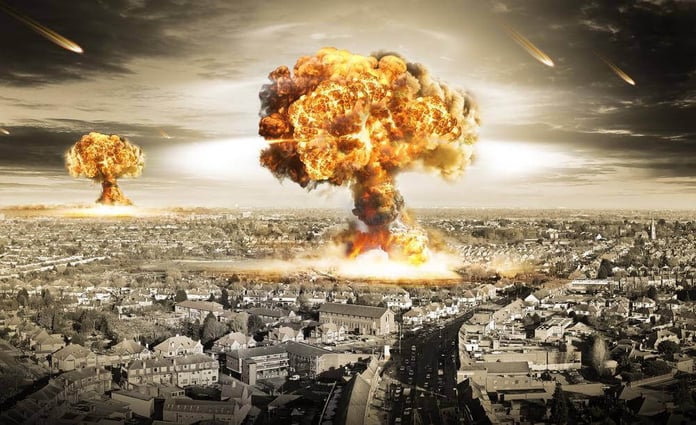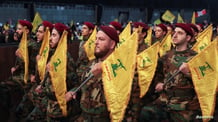
The pandemic made devastating impacts across the world by causing the death of the lives of millions and bringing enormous economic loss and other negative impacts. But it reduced conflicts around the world to a greater extent. The world has already started to recover from the losses caused by the pandemic in economic and other terms with vaccination programs, increased economic activities and normalizing other activities. By this time, China has intended to increase its nuclear arsenal, while the USA, the UK and Australia formed a group called AUKUS to contain China. Moreover, Russia and China included India and Pakistan in the Shanghai Cooperation Organization, which is rendered as a rival group of the Western hegemony. Such recent developments raised an old question anew: is there any possibility of the Third World War, sooner or later?
Of course, there are controversies regarding the Third World War. Some say that it already started with conflicts among nations after the Second World War but it will end with a massive war among countries including powerful ones. Some others say that the Third World War is yet to be started but it will occur involving global powers in the future. Still, others say that there is no possibility of the Third World War because of the shift of the means of global dominance from military-based to economy-based hegemony and the possibility of the complete or near-complete destruction of the world as a whole. Yet, the possibility of the Third World War involving rival groups of competitors, along with their respective allies or other countries, for global hegemony cannot be discarded altogether, no matter whether it has started with sporadic small-scale and large-scale inter-country and intra-country wars in different parts of the world for long or not.
Of course, there are some convincing reasons for the increased possibility of the Third World War including increased geopolitical competition for economic and military hegemony, rising China with its assertive foreign policy aiming at global dominance, the China containment policy of the West (or at least some significantly powerful countries of the West), increased tensions between Iran and Israel and the re-gaining of power of the Taliban. Of course, competition for global hegemony was there since the Second World War especially between the US and its allied parties and the then USSR and its allied countries, though the west exercised global hegemony in military, economic, political and some other aspects for long. But the hegemony of the West led by the USA was challenged anew in the last decade especially by Russia and China and has been continuing till date. While Russia occupied Crimea and played a decisive role in Syria, China is rapidly rising in economic and military terms.
Of course, China’s rising economic and military power has become an increasing threat to the West and its hegemony in economic, military and other terms. Notably, China has become more assertive in its foreign policy with the initiation of the Belt and Road Initiative, but its assertiveness increased during the pandemic. Moreover, China, which has good strategic and military grouping with another superpower such as Russia, has recently emphasized its interests in increasing its nuclear arsenal. In response to China’s rising economic and military capability and its growing influence in the Asian region including the South China Sea, the West has already formed the QUAD involving the USA, Japan, Australia and India a few years back and the AUKUS consisting of the USA, the UK and Australia a few days back. The main aims of these groups are to contain China in economic terms on the surface, though it is rendered as economic and military terms in reality. These will increase tensions between China and the West. But because of the point of global hegemony, the competition between China and its Western counterparts is less likely to be reduced in the days ahead.
Moreover, the long Israel-Iran disputes along with their proxy wars in the Arab region, the Palestine-Israel conflict and the rise of the Taliban in Afghanistan can also increase the possibility of the Third World War. Notably, Israel and Iran are aligned with rival global powers including the USA and Russia respectively. Indeed, competition is growing between Iran and Israel in securing dominance in the Middle East. Israel’s recent ties with some countries including the UAE, its repeated threat to military strike over Iran, Iran’s repeated threat of war with Israel and attacks of Iran-supported non-state actors including Hezbollah over Israeli targets are indicative of rising competition of both parties in the Middle East. Moreover, increased attacks targeting the military base of the USA in Iraq after the killing of the Iranian general Quashem Sulaimani, the Taliban’s regain of power in Afghanistan, the departure of the US forces from Afghanistan and the withdrawal of its missile defense system from Saudi Arabia may motivate hard-line Islamist groups including Hezbollah and Al Qaeda to increase their attacks at the Western interests at least in the Middle East. Thus, increased tensions in the Middle East may not be discarded in the days ahead.
But it is notable that two areas can possibly be the hotbeds of the Third World War such as the South China Sea and the Middle East. But, between the areas, the South China Sea, which is a significant global economic route and a highly disputed sea because China deprives its other claimants including the Philippines, can be more likely to be the ground for the Third World War. This is mainly because the USA and some other Western powers now seem to be more interested in the containment of China in economic and military terms rather than in further devastating the already devastated Middle East caused by the Iraq war, Syrian civil war, Yemen civil war, constant conflicts between Palestinians and Israel and proxy wars between Iran and Israel. Undeniably, tensions mounted several times between China and the USA and some other western states including the UK that favor other claimants of the disputed sea. The Western powers carry out frequent exercises called the freedom of navigation and the forces of China and the USA sometimes come closer to each other over the sea. If the Third World War starts in the Middle East or more specifically against Muslims, as was predicted by Samuel Huntington in his famous book ‘’The Clash of Civilizations’’, it can only be the case if Israel preemptively carries out a major attack on Iran or Iran and/or Iran-supported Islamist groups carry out a massive attack on Israel and/or the Western targets because of the influence of the broader geopolitical game or the mere intention to secure supremacy in the region.
But a relevant question remains on whether nuclear bombs can be used, given that any large-scale war called the Third World War occurs with the involvement of superpowers. Generally, experts and scholars in international relations indicate that the usage of nuclear war between or among nuclear countries is less likely. Samuel Huntington even discarded the possibility of the usage of nuclear bombs altogether. Of course, non-nuclear states including some states in the Middle East remain vulnerable to nuclear attacks because such attacks may be used by any global/regional power(s) as an indirect threat to rival global powers that was seen in the Second World War. Yet, the prediction of scholars and experts of international relations may not be right because the establishment and the maintenance of global hegemony may compel competing parties to use whatever arsenal they have. In that sense, nuclear war among nuclear powers with the preemptive usage of a limited number of nuclear bombs, more specifically by those nuclear powers that have advanced nuclear weapons, cannot be discarded altogether for the decisive advantage in the race of global hegemony rather than the complete destruction of the world. Such a possibility increases since there remains an option for negotiated settlement after initial nuclear attacks and no nuclear powers may use hundreds of nukes that may completely destroy themselves too.
Even though the Third World War occurs after all, an important point is whether it will start sooner or later. As noted already, the world is now more concentrated on the financial and other sorts of recovery from losses driven by the Pandemic. Consequently, focus on a large-scale war appears to be less likely at this moment. But such a tendency may not work for all similarly. Indeed, China has shown more aggressive behaviors during the pandemic, even if the West has remained calm during the pandemic. While established countries have a general tendency to remain calm, rising powers have a general tendency to become hurried in realizing targets. Consequently, tensions can rapidly increase in some areas giving rise to another massive war earlier. Also, the West may also consider more actions against China sooner, lest the latter becomes more powerful sooner, both militarily and economically. Thus, the occurrence of the Third World War sooner may not be surprising altogether.
But the Third World War is not desired because of its devastating effects, not only the deaths of millions but also losses in economic, social and other aspects across countries, though some countries can be more affected and others less. Already, many countries are devastatingly affected by the pandemic in economic and other terms. Yet, the intention to be global hegemons and/or to maintain the global hegemony may know no limits. Indeed, devastating wars occurred in the past because of securing global hegemony. Consequently, the possibility of the Third World War is not unlikely altogether, although whether the war will occur sooner or later depends on many factors, both noted and unnoted.












Comments are closed.